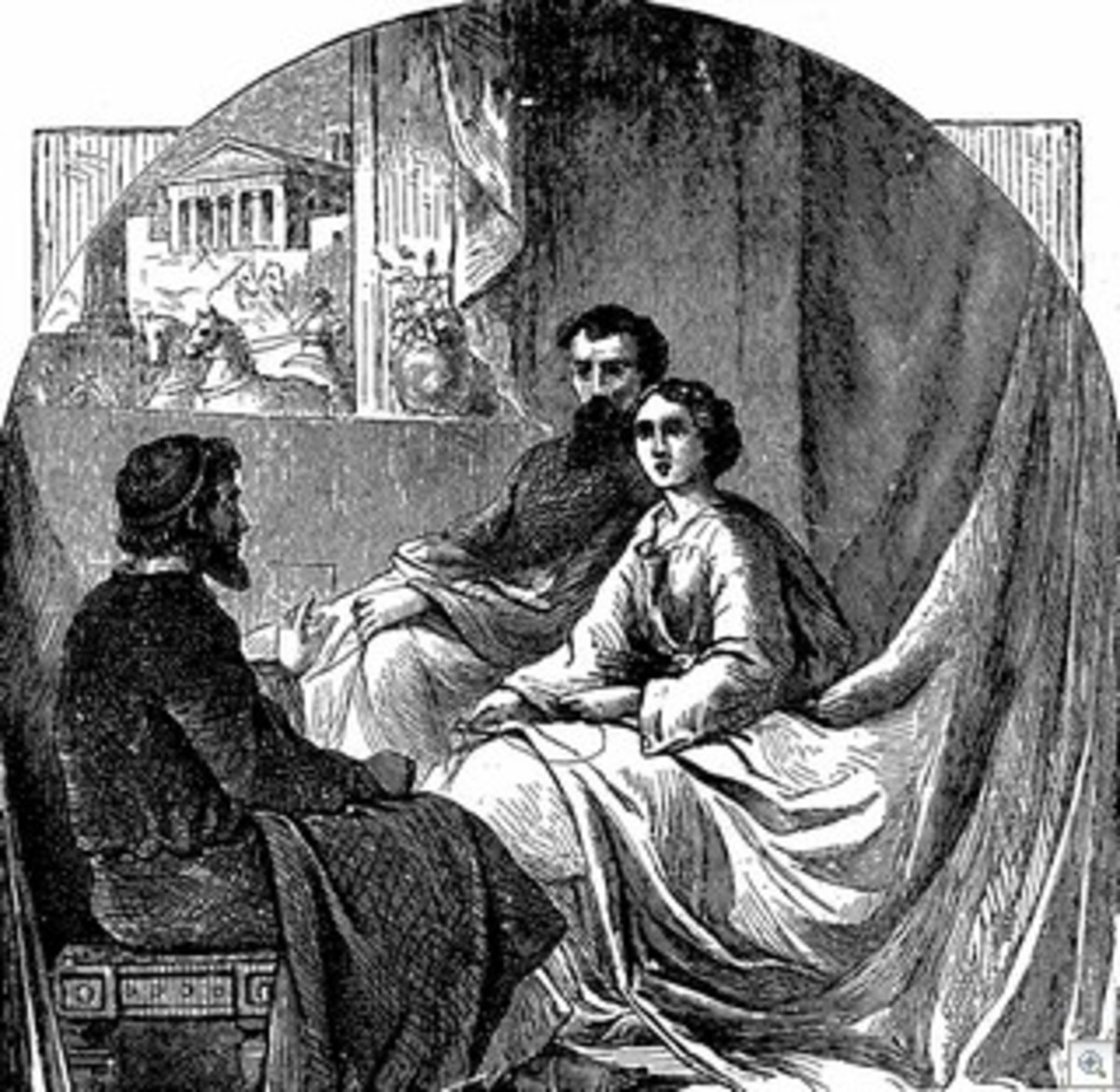Does the Bible Condone Rape?

Does the Bible really condone rape?
No, but that doesn’t stop the village atheists from crying “RAPE!” You would think from the way they carry on, they are the ones being raped.
I have had a hub published for almost two months entitled “Why I Love the Bible (Top 10 Reasons).” It is a rather light-hearted humorous (at least I think so) take on biblical issues.
But I’m getting serious now. A self-proclaimed atheist who has been spreading his babble-on (Babylon) all over the place decided to post on my hub, in response to my statement “The Bible does not condone date rape.”
This proclamation that the Bible condones rape is almost as amusing as the self-proclaimed agnostic who claimed that maggots evolve from garbage and that fact proves evolution. And then one of the disciples of Satan says the Holy Ghost raped the Virgin Mary.
Okay, enough already, let’s get down to it. Does the Bible condone rape?
(Photos are public domain as best as can be determined.)
This is what he said on my hub “Why I Love the Bible” recently:
But it appears the bible does condone Date Rape, In the first one you will notice that if he rapes and get CAUGHT he has to give the father money and marry the girl. Poor girl get no say. In the second one he can do anything he likes as long as he is at war with you and kills you first. Something to think about.
Deuteronomy 22:28-29 NIV
If a man happens to meet a virgin who is not pledged to be married and rapes her and they are discovered, he shall pay her father fifty shekels of silver. He must marry the young woman, for he has violated her. He can never divorce her as long as he lives.
Deuteronomy 21:10-14 NKJV
When you go out to war against your enemies, and the LORD your God delivers them into your hand, and you take them captive, and you see among the captives a beautiful woman, and desire her and would take her for your wife, then you shall bring her home to your house, and she shall shave her head and trim her nails. She shall put off the clothes of her captivity, remain in your house, and mourn her father and her mother a full month; after that you may go in to her and be her husband, and she shall be your wife. And it shall be, if you have no delight in her, then you shall set her free, but you certainly shall not sell her for money; you shall not treat her brutally, because you have humbled her.
This is what I say:
Hmmm. I wonder why he quoted from the NIV when the other verses he quoted are NKJV. Hmmm.
Oh, might it be because of the word “rapes” do you suppose? Do you find that word "rapes" in other translations? Not any good ones. The NIV is a terrible translation. If anyone would like to debate whether the NIV is a terrible translation, bring it on.
I’m going to ignore the verses he quoted from Deuteronomy 21:10-14 NKJV in this article. The verses are not relevant to the discussion here and have been debated elsewhere, for example on this individual’s hub and in the forums.
Does “No!” really mean “Yes!” I wonder.
The word “rapes” also occurs in Deuteronomy 22:25 in the NIV, just a few verses before it occurs in verse 28: “But if out in the country a man happens to meet a young woman pledged to be married and rapes her, only the man who has done this shall die.”
Does this sound like the Bible condoning rape?
Now, the word “rapes” in this verse is an accurate translation of the Hebrew word “chazaq” in the context in which it occurs and the next verses, 26 and 27, which indicate the woman is not held accountable and cried out for help but none could hear her.
Why isn’t that same word “chazaq” used in verse 28 to mean “rapes” I wonder? If the very same author intends to say the very same thing?
In verse 28, The Hebrew words “taphas” and “shakab” are translated to “rapes” in the NIV, quite incorrectly. In the KJV those Hebrew words are translated to “lay hold on her, and lie with her” and in the NKJV and NASB those Hebrew words are translated to “seizes her and lies with her.” “Shakab” is used repeated in the OT to refer to sexual intercourse. Now meanings of “taphas” are to manipulate, to lay hold on, and to seize. Hmmm, to manipulate. As in seduction?
The word “taphas” implies manipulation while the word “chazaq” implies force. The NKJV and NASB both translate Deuteronomy 22:25 to “forces her and lies with her” as opposed to “rapes” in the NIV. Okay, same thing. So why didn’t the translators of the NKJV and NASB use “forces” in Deuteronomy 22:28?
Who was raped and who wasn’t?
Tamar, the daughter of King David and Maachah the Geshurite princess and sister of Absalom was indeed raped. Tamar was also the half-sister of Amnon, the dude who raped her.
Now Amnon and his buddy Jonadab cooked up a scheme for Amnon to have his way with the virgin Tamar. When Amnon says to Tamar (2 Samuel 13:11, KJV), “Come lie with me, my sister,” she replies, “Nay, my brother, do not force me.” The outcome becomes clear in verse 14, “Howbeit he would not hearken unto her voice: but being stronger than she, forced her, and lay with her.”
And what were the consequences of Amnon’s sin? Right, Absalom had him offed. Doesn’t sound like the Bible is condoning rape to me.
In the Book of Esther, we have a situation where King Ahasuerus encounters Haman on the bed of his queen, Esther. She’s on the bed too. Well, the king suspects the worst of Haman. Esther 7:8, “Then saith the king, Will he force the queen also before me in the house?”
The Hebrew word translated to “force” in this instance is “kabash.” That word means to violate, subjugate, or conquer.
It doesn’t seem odd to me that the authors of the verses cited in 2 Samuel and Esther would use different Hebrew words to mean rape. Two different individuals authored those two books. It would, however, be quite odd if the author of Deuteronomy used different Hebrew words in verses 22:25 and 22:28 to mean rape.
Conclusion: The Bible does not condone rape. That is a ridiculous assertion. Hearing atheists make statements such as this is like listening in on a support group of frontal lobotomy survivors.
Nonbelievers should stick to mythology instead of fabricating stories about the Bible condoning rape. The story of “The Rape of the Daughters of Leucippus” would be a good place to start. You know, where the twin sons of Zeus fall in love with the twin daughters of Leucippus and . . . (refer to picture below).
Memo to the village atheists: Do your homework if you want to debate biblical issues.









